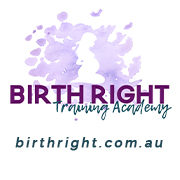CAESAREAN SECTION
This is major abdominal surgery and increases the risk of maternal death by about four times (39), as well as possibly affecting mother and baby’s health in subsequent pregnancies.(40) There is either a shorter or absent labour with Caesarean section, and the peaks of oxytocin, endorphins, catecholamines and prolactin are absent. Mothers are usually separated from their baby for some hours after birth, so breastfeeding is usually delayed. Both will also be affected by the drugs used in the procedure, (epidural, spinal or G.A.) together with the drugs used for post-operative pain relief.
This is such a radical departure from our hormonal blueprint. After interviewing 242 women in late pregnancy and again after birth, researchers found that 50 percent of women who had spontaneous vaginal births experienced a marked improvement in mood and an elevation of self-esteem after birth. By contrast, the 17 percent who had caesarean surgery were more likely to experience a decline in mood and self-esteem.(41)
Another study looked at the breastfeeding hormones prolactin and oxytocin on day two, comparing women who had given birth vaginally with women who had undergone emergency caesarean surgery. In the C/S group, prolactin levels did not rise as expected with breastfeeding, and the oxytocin pulses were reduced or absent. In this study, first suckling had been at 240 minutes average for caesarean babies, and 75 minutes average for babies born vaginally. Duration of breastfeeding was not significantly different for the mothers, and the authors conclude that “other factors” can compensate for deficient hormonal release.(42) Other research has shown that early and frequent suckling positively influences milk production and the duration of breastfeeding. The authors of the hormonal study above add, “These data indicate that early breastfeeding and physical closeness may be associated not only with more interaction between mother and child, but also with endocrine (hormonal) changes in the mother.”(43)
These studies not only indicate important links between birth and breastfeeding but also show how an optimum birth experience can influence the long-term health of mothe rand baby. There are so many advantages to successful breastfeeding, such as reduced risk of breast cancer and osteoporosis for the mother and reduced risk of diabetes and obesity long-term for the child. An enhanced self-esteem following a normal birth is a life long positive effect.
